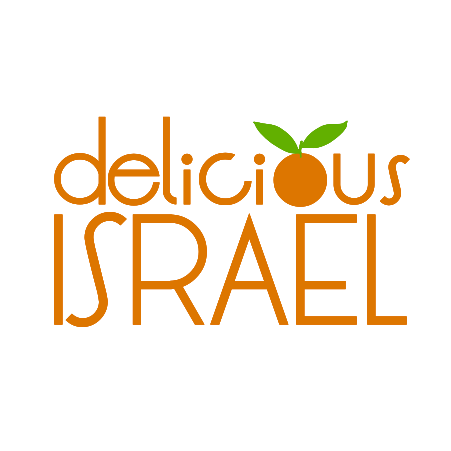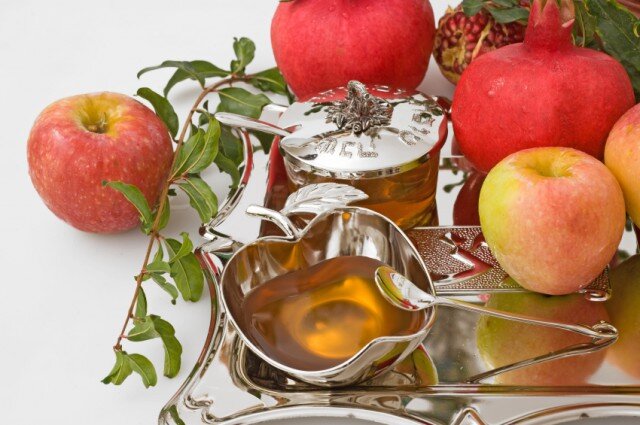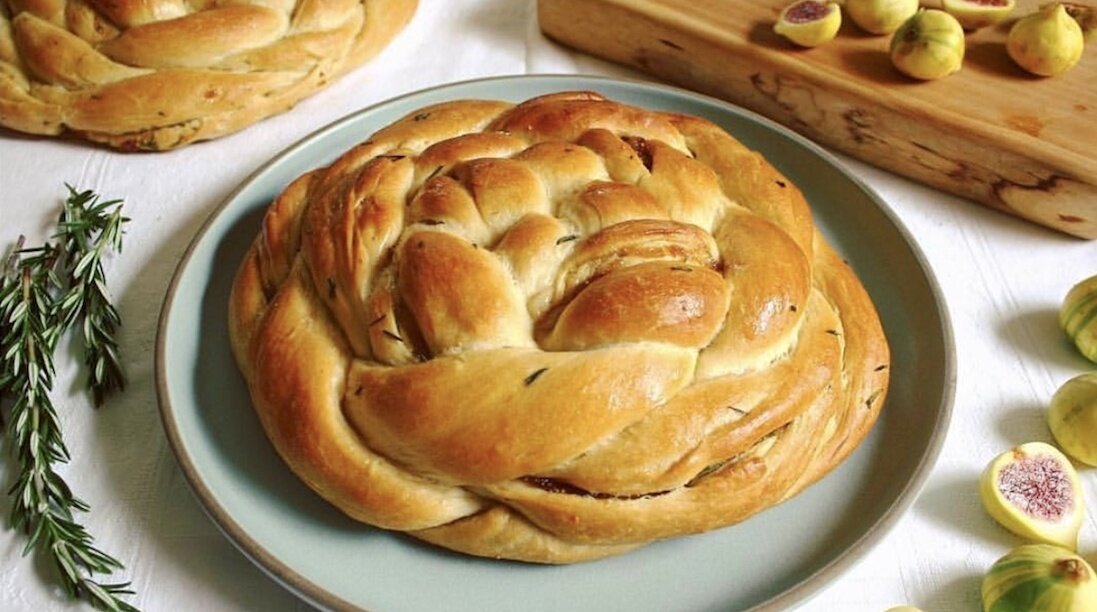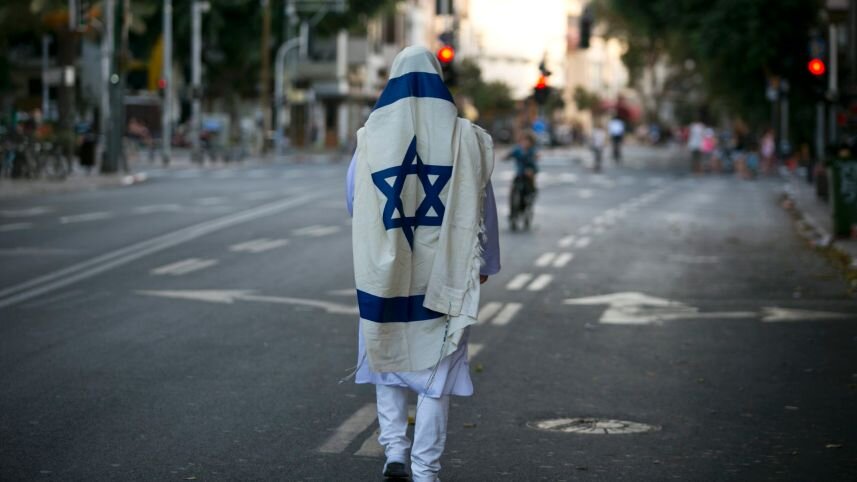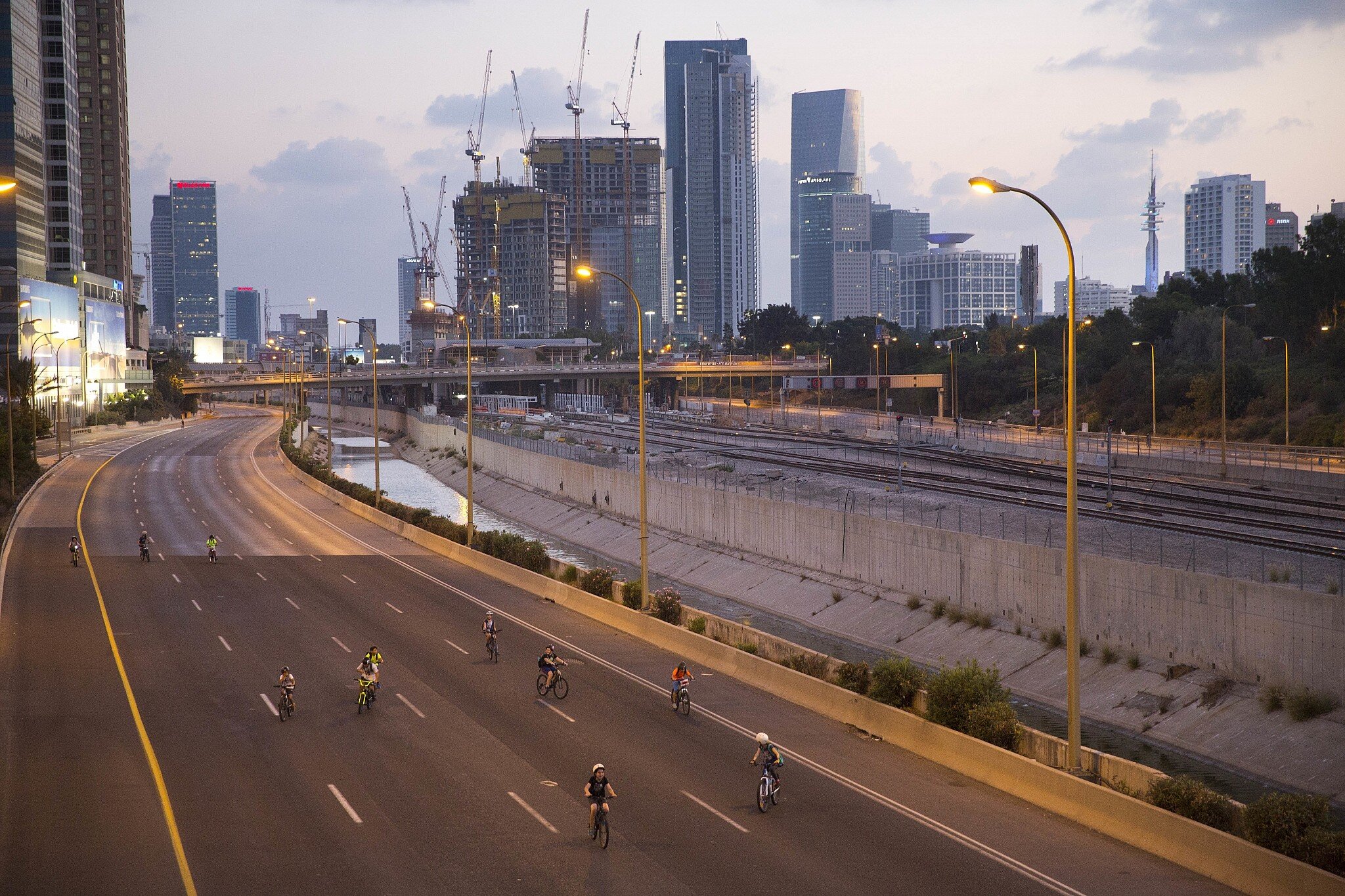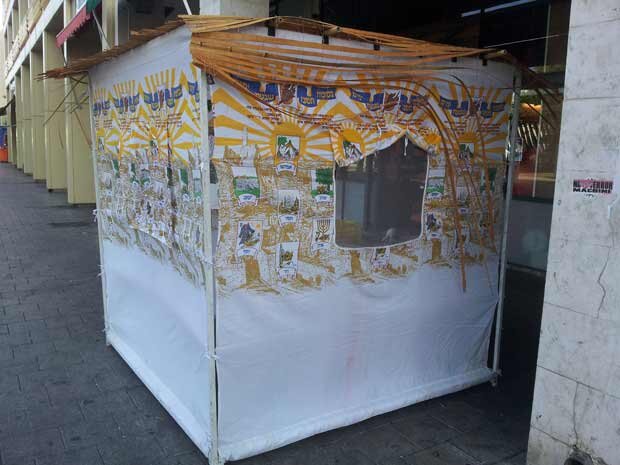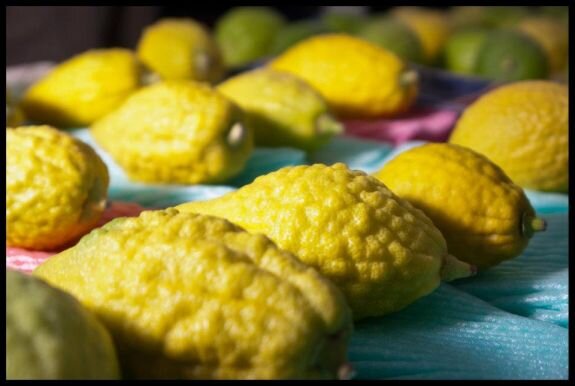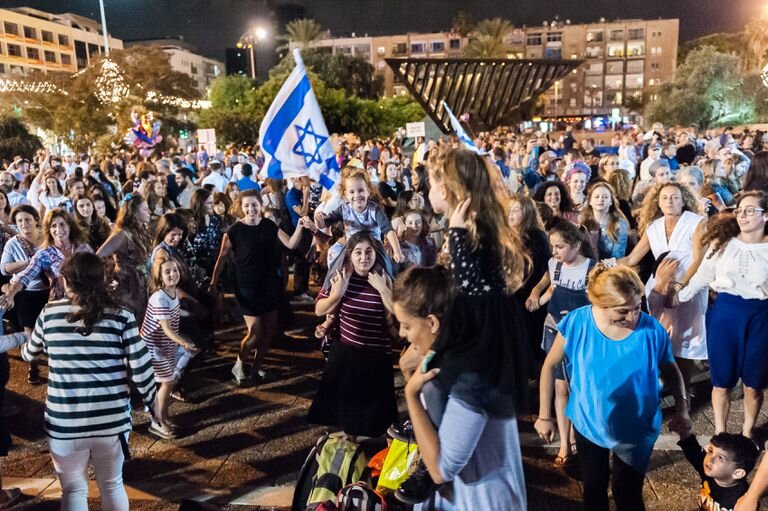Even for native Israelis, the Jewish holiday fall season can be confusing. Exciting, and delicious - but confusing! The dates of the holidays change every year in accordance with the lunar calendar, and always seem to come in a flurry no matter how early or late they arrive. Every year, September and/or October feature a few important Jewish holidays almost consecutively, and a holiday spirit fills the air. This time in Israel often means beautiful weather and coupled with this special holiday atmosphere, the Jewish holidays (the “chagim” in Hebrew) are a perfect time to visit Israel.
With all this said - tourists may be confused by the multitude of public holidays, total lack of public transportation and many restaurant closings during this time. With a little explanation and advance planning, your Israel fall vacation can be perfect - and you won’t go hungry! Let Delicious Israel help - we’ve spelled out everything you need to know to survive the Jewish holiday season.
*Note: Jewish holidays are evening-to-evening, meaning begin at sundown of the dates listed, include the daytime of the next day, and end that evening. For example - shops are open on September 29 until the holiday begins in the evening, which is called in Hebrew “Erev Chag”.
Rosh Hashana (September 29-October 1, 2019)
Happy New Year! This year, according to the Jewish lunar calendar, fall 2019 means welcoming in the year 5780! This two-day New Year celebration is a very special time in the Israeli year, as families gather together for festive meals to welcome in all the new goodness. You might also see and hear the shofar, a ram’s horn blown during this holiday and Yom Kippur. Expect no public transportation and very few businesses open, but some restaurants and convenience stores will be available - and very busy.
All Jewish holidays begin in the evening of the dates listed. Note that this year, the beginning of Rosh Hashana falls on a Sunday, the day after the Israeli Friday-Saturday weekend. As this is almost a long weekend, it is likely some vendors will take an extra long weekend and be closed Sunday, so do check in advance, and expect a crazy busy day as people rush to get all their ingredients for their holiday tables. Once the holiday begins, expect all Kosher restaurants to be closed and a very limited selection of non-Kosher eateries open in major cities, especially Tel Aviv. Hotels are likely your best bet for things to be open.
Jewish holidays and food are strongly linked! On Rosh Hashana, there are a few special foods that have become customs across Israel. Expect to see round Challah loaves (instead of the regular braided ones - to symbolize the yearly cycle), pomegranates (a symbol of good luck and now in season) and apples and honey to symbolize a sweet new year.
In addition to this, many Jewish cultures within Israel have their own specific food customs for this holiday! For example - Eastern European Jews often place a fish head at the table, and Persian Jews have a special meal that includes a sheep’s head.
For a truly immersive experience, check out a few recommendations of events happening around Rosh Hashana.
Yom Kippur (October 8-9, 2019)
Yom Kippur, the Day of Atonement, is considered the single holiest day in the Jewish year. It is a somber and solemn day, where all of the regular holiday prohibitions are in place (no driving, use of electricity etc) plus an added element of this being a 25-hour fast day! It is illegal for businesses to operate on Yom Kippur - which means no restaurants, malls, shops, convenience stores or anything else. Only emergency services will be available. It is a good idea to consult with your hotel about what options they may have for tourists, since even hotel restaurants will not be operating. Many tourists like to purchase cooked food in advance or go to a grocery store before the holiday to stock up on essentials until restaurants re-open.
One of the most interesting things about being in Israel on Yom Kippur is seeing even the busiest streets and major highways flood with pedestrians and cyclists. This amazing phenomenon comes from the tradition of the entire country refraining from driving, meaning it is a wonderful time to explore the major cities in a very peaceful way - so different from the hustle and bustle of the rest of the year. You may also see many people dressed in white in honor of this sacred day.
Expect everything to close in the late afternoon of October 8 and re-open shortly after the holiday ends on October 9 in the evening. Unlike other holidays where certain non-Kosher restaurants will remain open, absolutely none will be available on Yom Kippur evening until the holiday ends the next day, so plan accordingly! You may be able to find some small convenience stores open in Jaffa if you are really in a pinch, but it is hard to know in advance.
Sukkot (Oct. 13-20, 2019)
Yup - you read it right! Less than a week after Yom Kippur, we’re back at it again with a WEEK-LONG Jewish holiday- Sukkot! But don’t fret - only the first and last days of this holiday traditional are “holy days” (no public transportation, restaurants, and so on) are of significance to tourists - Oct. 13-14 evenings, and beginning on the evening of the 20th until the end of Shemini Atzeret, the holiday attached to the end of Sukkot, on the 21st (see below). Phew! So, what’s going on here?
Sukkot is one of the most important Jewish holidays and can most easily be explained as a harvest holiday. To commemorate the huts ancient Jews used to dwell in during harvest season, you will see many people in Israel building a hut that shares the name with the holiday - called a sukkah (singular) or sukkot! Observant Jewish people will eat all their meals and even sleep in their sukkah, but even secular Israelis will enjoy spending some time in one. So, if you see hut-like structures attached to restaurants and even on apartment balconies, you’ll understand why! Some of our favorite restaurants might feature a sukkah this year, like hummus joint Shlomo and Doron who open a small structure just next to their tiny restaurant. We also celebrate this holiday with (among other things), the etrog fruit.
The middle days of this holiday (daytime of October 15-20) are still part of the holiday but do not contain the restrictions on driving, electricity and so on, meaning public transportation is still running and all restaurants will be open. Expect markets and tourist attractions to be very busy, as many Israelis take off work during this middle days of the holiday to spend time with their families.
Shemini Atzeret/Simchat Torah (Oct. 20-21) 2019
Okay, okay, we’re really almost done here. Last but not least, we welcome the holiday of Shemini Atzeret (including the Simchat Torah holiday, often considered its own holiday), culminating the end of the Sukkot holiday. Simchat Torah, part of this holiday and sometimes considered its own holiday, also celebrates the Jewish people receiving the Torah (bible), so it is a VERY joyful day for many Israelis, especially observant Jews. The whole holiday is a huge party - it has even become customary for people to drink until drunkenness, and in a city that needs no excuse to party, this means you might even see dancing in the streets, although most of it will take place in and around synagogues. With some bars open all holiday and others re-opening as the holiday ends, this is a fantastic night to go out on the town!
As listed above, from nightfall of Oct. 20 until sundown of Oct. 21, expect a general holiday atmosphere without many restaurants and amenities, although some non-Kosher restaurants will be open for business as usual.
All in all, this holiday season is a very special and beautiful time in Israel! The best way to enjoy it is to score yourself an invite to an Israeli family for traditional celebrations, but just being a part of the atmosphere on the streets is a sight in and of itself. Either way - enjoy!
If you have any questions or even need help finding where to eat on these holidays, we will be happy to help - just write to [email protected]!
